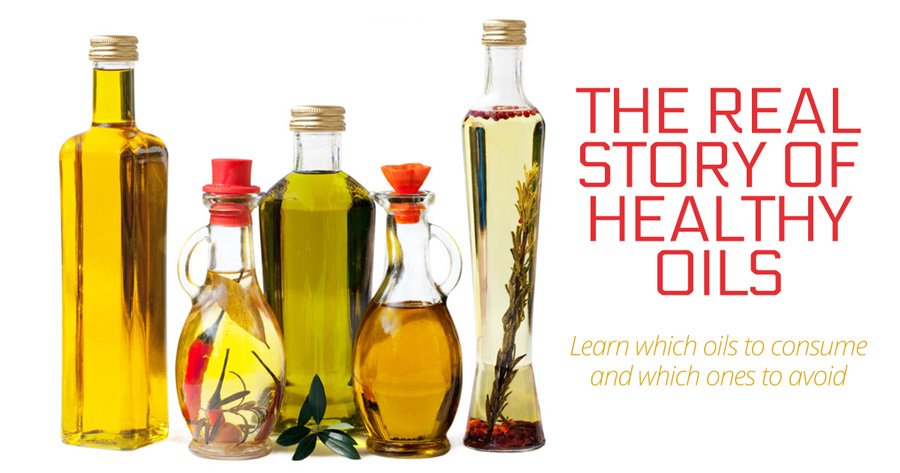I think that one of the most confusing things in nutrition is the subject of fat. Fat is one of three macronutrients (along with Protein and Carbohydrates) that play an important part in our health. Fat is essential for our immune function, the production of hormones, the regulation of our body temperature, and the absorption and assimilation of vitamins A, D, E, and K. Fat is a form of energy storage.
While fat has gotten a bad reputation for causing obesity, high cholesterol, heart disease, and other health conditions, the real story is much more complex. The fact of the matter is that we need this nutrient to get healthy, stay healthy, and optimize our health.
We have been on the wrong track with fat for a long time and have limited our fat consumption, replacing fat with processed alternatives and sugars. We have been told to never eat saturated fats, to consume lean proteins and processed industrial seed oils, and meanwhile have seen an explosion in obesity, cancers, and chronic inflammatory disease. This shift from fats found in whole food sources like animals, whole fat dairy, nuts, and seeds to the processed oils and fat-free processed foods has been far from healthy.

The primary problem is that there are different kinds of fats. Some that contribute to health and some that do not. There are 3 main types of fats:
- Saturated Fats – most are solid at room temperature. They are extremely stable, making them great for cooking because they do not oxidize easily, even at higher temperatures. Saturated fats are further broken down into three different types of fatty acids, depending on the length of their chains.
- Long-chain fatty acids come from animal meats and milks. They are the primary storage form of energy in the body.
- Medium-chain fatty acids come from breast milk and coconut milk. They are highly absorbable and have both antimicrobial and antioxidant properties. They convert into ketones, which is an alternative to glucose for providing the body energy and is known for promoting fat burning.
- Short-chain fatty acids are formed in the body when the microbes in the gut ferment fiber. These are the primary source of energy for the cells in the large intestine. These fatty acids keep the gut healthy by maintaining the integrity of the lining.
- Monounsaturated Fats– found in olives, avocados, meats, and some nuts, these types of fats are more susceptible to oxidation from heat and light. These fats are also, like saturated fats, a major source of the structural fat in the body, and are extremely healthy to consume. Monounsaturated fats help to lower LDL cholesterol and triglycerides, raise HDL cholesterol, reduce inflammation and lower blood pressure.
- Polyunsaturated Fats– always liquid at room temperature, these fats are extremely vulnerable to heat and light and become oxidized easily. All of our cell membranes are made up of these types of fats and they help with cellular function and help to regulate genetic expression.
The two classes of polyunsaturated fats are Omega 3 and Omega 6 fatty acids. It is extremely important to maintain a balanced intake of these two fatty acids in order to maintain health. The optimal ratio of Omega 3 to Omega 6 fats in the diet should be 1:1. The average American, however, has a ratio of 1:20, causing a detrimental shift towards inflammation. This imbalance is thought to be one of the major contributing factors to the modern inflammatory disease epidemic.
- Omega 3 Fats– Include alpha-linoleic acid (ALA) from walnuts and flax, docosapentaenoic acid (DHA) from cold water fish and marine algae, and eicosapentaenoic acid (EPA) from fatty cold water fish like Salmon, Mackerel, Anchovies, Sardines, Herring (SMASH fish), shellfish, and some nuts and seeds. It is important to note that the only source of DHA from non-animal sources is marine algae; vegetarians and vegans must eat marine algae to get DHA, otherwise they will be deficient. Lack of DHA has been shown to contribute to Alzheimer’s disease, ADHD, anxiety and depression, eye health
Omega 3 Fats are extremely important for human health. In fact, deficiency of Omega 3 fats is thought to be the greatest contributing factor to our epidemic of inflammatory diseases (yes- this needs to be said again!). Even modest consumption of Omega 3 Fats has been shown to reduce the risk of heart disease by 35%, which is much higher than any drug therapy has been shown to do. Omega 3 fats are anti-inflammatory, play an important role in brain development and function, and are shown to support healthy mental health.
- Omega 6 Fats– include linoleic acid (LA) from limited plant foods and in abundance from industrial seeds oils that are in most processed foods and vegetable oils. It is found in salad dressings, chips, crackers, condiments, snack foods, and is the common source of cooking oils in most restaurants. LA is considered essential, meaning that it has to be consumed in the diet in order for us to have it in our bodies. However, we get such an over-abundance of it in our diets that it is actually damaging to our health. It is linked to cancer, liver disease, heart disease, weight gain, and aging. Arachidonic acid (ARA) is another omega 6 fat. ARA is found in most animal meats and is involved in cellular signaling, brain health, muscle repair, healthy skin and hair, hormone health, and fertility.
In order to control the delicate balance of Omega 3 to 6 in the diet, it is most important to cut the use of all industrial seed oils from the diet.
While this may seem like a difficult endeavor, I would argue that this is the single most important dietary change that you could do for your health. Once you start reading the labels on the foods you consume looking for these oils, you will be amazed at the prevalence in our foods. Eliminating these oils can not only help prevent diseases, but can also reverse the course of inflammatory conditions that you might have now.
What to Eat
Healthy Oils that are safe to eat and use over heat (Traditionally used oils, unrefined)
- Avocado oil
- Butter
- Full-fat dairy
- Ghee
- Tallow
- Lard
- Cocoa butter
- Macadamia nut oil
- Coconut Oil
- Almond oil
Healthy to use cold or only with low heat
- Olive oil
- Sesame Oil
- Walnut Oil
- Flaxseed Oil
- Nuts
- Seeds
- Nut butters
Unhealthy fats. DO NOT EAT (refined, hydrogenated, bleached, deodorized, trans, polyunsaturated)
- Safflower oil
- Sunflower oil
- Soybean oil
- Canola oil
- Corn oil
- Cottonseed oil
- Palm Oil
- Wheat-germ oil
- Rice Bran oil
- Grapeseed oil
- Peanut oil
www.drklearman.com
Instagram @lizaklear
Facebook @drelizaklearman
Empowering Active People to Achieve Optimal Health Using Natural, Drug-free Solutions
www.vailvalleypharmacy.com
Facebook @vailvalleypharmacy
More Than Just a Pharmacy
If you need help and guidance in your journey to better health, schedule your appointment today!
Call me at 970-328-5678. to book your appointment today!




